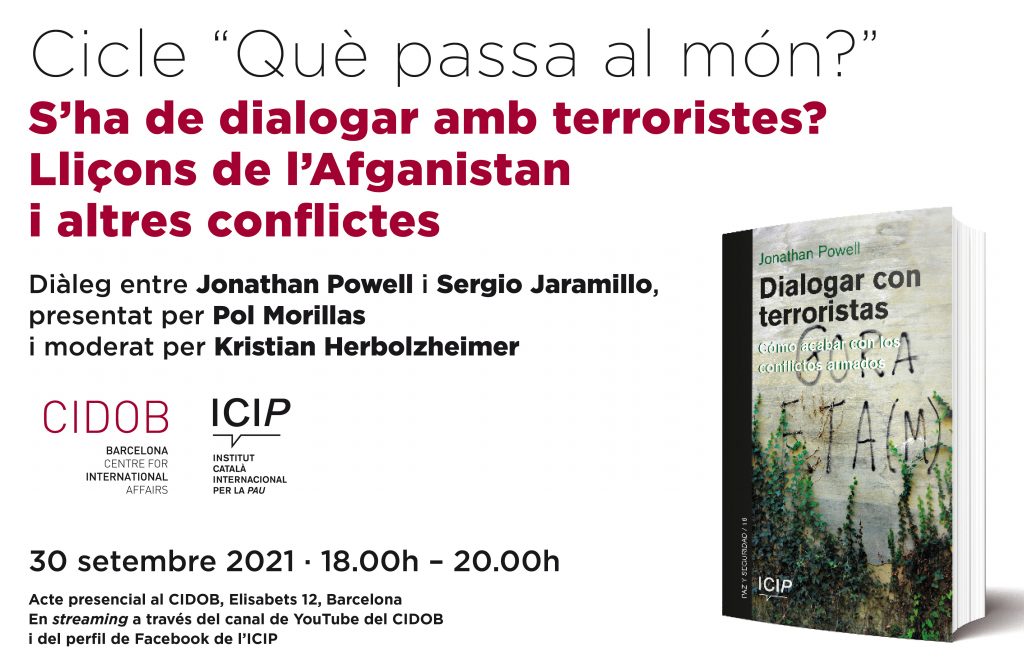The terrorist attacks of September 11, 2001 reinforced the old dogma of not negotiating with terrorists. Many countries introduced legislation that made even humanitarian contacts with organizations classified as such more difficult. Twenty years later, this policy has not only proved ineffective but even counterproductive. Today, the international community is faced with the dilemma of recognizing the Taliban government of Afghanistan with which, in practice, it maintains direct communication for many reasons.
In the book Talking to Terrorists: How to End Armed Conflicts, recently published in Spanish by ICIP as part of the “Peace and Security” book series, Jonathan Powell, Tony Blair’s former Chief of Staff and a key player in the peace negotiations in Northern Ireland, argues that any conflict, however bloody, ancient or difficult it may be, can be resolved with dialogue, patience and political leadership. That is why he defends that, although dialogue will always be difficult and morally risky, it is necessary.
On the occasion of the publication of the book in Spanish, ICIP and the CIDOB have organized a conference entitled “Should we talk to terrorists? Lessons learned from Afghanistan and other conflicts.” In this colloquium, Jonathan Powell and Sergio Jaramillo, Colombia’s former High Commissioner for Peace, will discuss the opportunities and limits of negotiating with organizations that use violence to defend their aims. Both Powell and Jaramillo advised the government of Afghanistan in its recently failed peace process.
The conference will take place on Thursday 30 September at 6pm at the CIDOB (Jordi Maragall Room, Elisabets 12, 08001 Barcelona). The event will be chaired by ICIP director Kristian Herbolzheimer and presented by CIDOB director Pol Morillas.
To attend the event in person, please register here:
The event will also be streamed on the CIDOB YouTube channel and on ICIP’s Facebook page.

